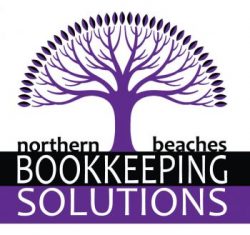Effective cash flow management is crucial for small business success. Without proper cash flow management, even profitable businesses can struggle to stay afloat. This guide provides essential strategies for managing cash flow effectively to ensure your business remains financially stable.
What is Cash Flow Management?
Cash flow management involves monitoring, analysing, and optimising the movement of cash in and out of your business. It includes tracking revenue, expenses, and payments to ensure you have enough funds available to cover day-to-day operations and plan for future growth.
Why Is Cash Flow Management Important?
Cash flow management helps small businesses:
- Avoid Cash Shortages: Maintaining a positive cash flow ensures you can pay bills, staff, and suppliers on time.
- Identify Financial Risks: Monitoring cash flow can highlight potential issues like late payments or excessive spending.
- Plan for Growth: Accurate cash flow projections enable you to allocate funds for investments, equipment, or expansion.
- Stay Tax Compliant: Proper cash flow management helps you set aside money for tax obligations, avoiding financial stress during tax season.
Top Strategies for Managing Cash Flow
Implementing effective cash flow management strategies can prevent financial problems and support business growth. Here are key strategies to consider:
1. Create a Cash Flow Forecast
A cash flow forecast helps you predict future cash inflows and outflows. Use accounting software like Xero, QuickBooks, or MYOB to track income and expenses, and create projections for the next 3-6 months. Include expected payments from customers, upcoming bills, and potential investments.
2. Invoice Promptly and Follow Up on Payments
Send invoices as soon as work is completed and implement clear payment terms. Follow up on overdue accounts with friendly reminders to maintain a steady cash flow. Consider offering incentives for early payments or implementing late fees for overdue invoices.
3. Control Expenses and Reduce Costs
Review your expenses regularly to identify areas where you can cut costs. Negotiate better terms with suppliers, reduce unnecessary spending, and consider switching to more cost-effective services or products.
4. Manage Inventory Efficiently
Excess inventory ties up cash that could be used elsewhere in the business. Implement inventory management strategies to maintain optimal stock levels and avoid over-purchasing. Consider discounts or promotions to clear slow-moving stock.
5. Establish a Cash Reserve
A cash reserve acts as a financial safety net for unexpected expenses or periods of reduced income. Aim to set aside 3-6 months’ worth of operating expenses to cover unforeseen circumstances.
6. Negotiate Payment Terms with Suppliers
Extend payment terms with suppliers to keep cash in your business longer. Request payment terms of 30, 60, or 90 days, and prioritise paying suppliers who offer the most favourable terms.
7. Monitor Cash Flow Regularly
Review cash flow statements regularly to stay on top of your financial position. Regular monitoring helps you identify cash flow gaps early and implement corrective measures before they become serious problems.
8. Apply for Financing Before You Need It
Establish a line of credit or business loan while your cash flow is stable. This ensures you have access to funds during lean periods or emergencies without scrambling for financing at the last minute.
9. Use Cash Flow Management Tools
Invest in cash flow management software to automate tracking and reporting. Tools like Xero, QuickBooks, and MYOB provide real-time cash flow data, making it easier to monitor your financial position and make informed decisions.
10. Seek Professional Guidance
If cash flow management is becoming a challenge, consult a bookkeeper or financial advisor. They can help you develop cash flow projections, manage expenses, and identify areas for improvement.
Conclusion:
Effective cash flow management is essential for business sustainability. By implementing these strategies, you can maintain a positive cash flow, reduce financial stress, and plan for future growth. Regularly reviewing cash flow statements, optimising expenses, and seeking professional guidance can keep your business financially healthy and resilient.
